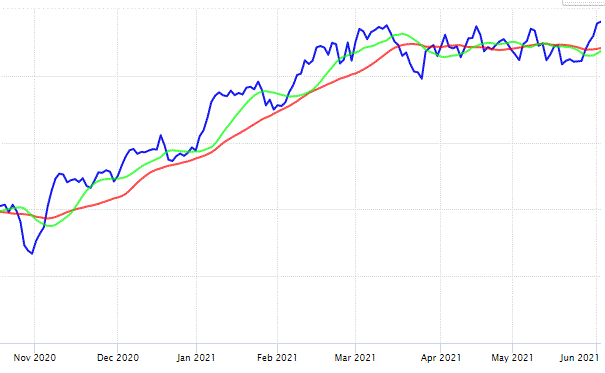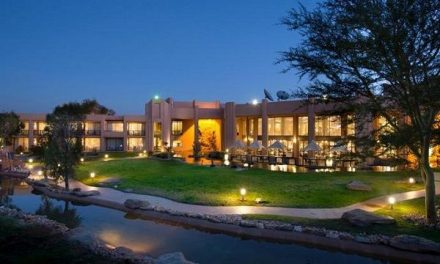
JSE All Share index now 11% higher than at beginning of 2020

On Wednesday 02 June 2021, the All Share index (ALSI) on the Johannesburg Securities Exchange (JSE) closed at 69,049.04 index points. This was its highest-ever close, coming after a rally on Monday which saw it gained 1.44% in a single day. Wednesday’s was the seventh consecutive day in which the index traded higher. On that day, it reached an intraday high of 69,278.
The previous highest intraday value was on Wednesday 03 March when it turned at 69,404 before closing at 68,327.
But on Thursday 03 June, during the early afternoon trade the ALSI has shed more than 1400 index points, bringing it down to around the 67,600 level, a 1.7% decrease in value in a single trading day.
Since 09 February this year, when the JSE first went above 65,000 index points, the South African bourse has maintained its elevated level of trading, moving in a relatively narrow band between 65,000 and 68,000 index points until Monday this week when it made the significant jump.
For the three years before 2021, the ALSI stuck to a range between 55,000 and 60,000 with the exception being March and April last year when it took a major plunge following the hard lockdown in South Africa. However, by September last year it was comfortably back in its former territory, a level it maintained until February this year when the breakout started.
The stellar performance of the past week was therefore not out of pattern with the previous past three and a half years. Even the pullback on Thursday still saw it staying above 67,000 so still very much within the band that it has followed since February.
These gyrations on the JSE have attracted much attention from analysts who concentrate on the JSE and the FTSE index on the London Stock Exchange. What comes to the fore from the work that I have been tracking is that the analysts are baffled by the ALSI’s performance, since there are no obvious economic conditions that support these moves.
This brings me to the conclusion that local market are not reacting to local conditions since not much has changed. Instead it looks more like a case of local markets following the UK market, but also not as a result of changes in fundamentals in the UK, but rather as a result of policies in the United States.
This is not a new phenomenon but it is somewhat disconcerting to realise that investor sentiment in South Africa, and by extension in Namibia, is determined by moves in the USA, and that we may be nearing a point where this follow-my-leader investment philosophy becomes disruptive.
The only consensus I could find among South African analysts is that the US$1.9 trillion pandemic relief package now in the process of being approved in the USA, has had and will continue to have major ramifications for all emerging market economies. Furthermore, we in southern Africa will not escape the local impact of what is happening in the rest of the world as the large economies pull out all stops to restart their own economies.
If this turns out to be true, then the two indicators that we need to watch are short-term interest rates and inflation but not for South Africa or Namibia, for the United States and for them only. Whatever else happens closer to home will be the result of what is happening in the world’s biggest economy.
Perhaps the scariest part for us is that instability in the American market will inevitably lead to instability in our local market. It is all good and well to shout that the JSE All Share index has set a new alltime record, but the danger is in the volatility that follows, as amply demonstrated by Thursday’s mini correction.
The biggest challenge to local investors is what to make of the trading of the past few months. If, as many analysts expect, inflation is finally going to rear its head in the USA, then it must be expected that renewed inflation is not far away in southern Africa. When that happens, the current interest rate breather that we have enjoyed since March last year, will not continue. In fact, monetary authorities in Namibia and South Africa may find themselves forced to raise short-term interest rates, sooner rather than later.
If that happens, the local private sector that has been under tremendous strain for several years, will find it even more difficult to operate than in 2020 and we may be looking at pervasive business rescue before the end of the current fiscal year.
The JSE ALSI graph was snipped from a year to year, daily movement graph by ShareData Online. https://www.sharedata.co.za/v2/Scripts/Quote_Other.aspx?c=J203












































